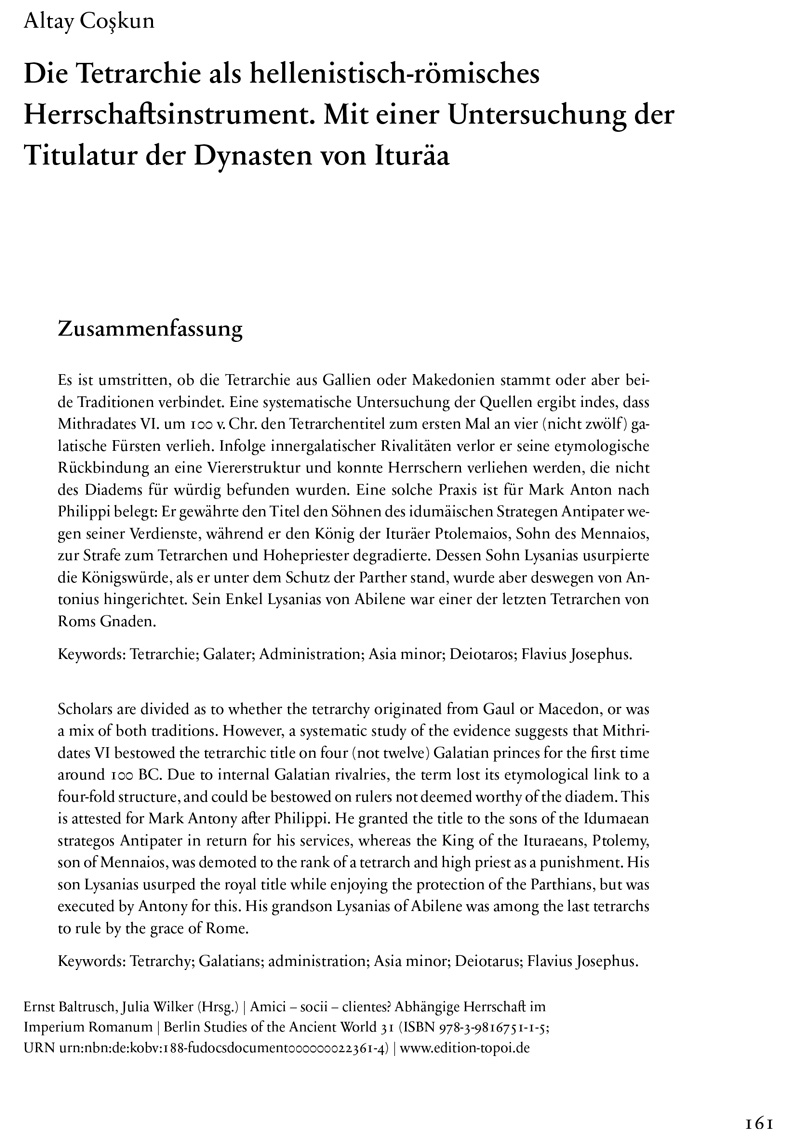Die Tetrarchie als hellenistisch-römisches Herrschaftsinstrument. Mit einer Untersuchung der Titulatur der Dynasten von Ituräa
Scholars are divided as to whether the tetrarchy originated from Gaul or Macedon, or was a mix of both traditions. However, a systematic study of the evidence suggests that Mithridates VI bestowed the tetrarchic title on four (not twelve) Galatian princes for the first time around 100 BC. Due to internal Galatian rivalries, the term lost its etymological link to a four-fold structure, and could be bestowed on rulers not deemed worthy of the diadem. This is attested for Mark Antony ater Philippi. He granted the title to the sons of the Idumaean strategos Antipater in return for his services, whereas the King of the Ituraeans, Ptolemy, son of Mennaios, was demoted to the rank of a tetrarch and high priest as a punishment. His son Lysanias usurped the royal title while enjoying the protection of the Parthians, but was executed by Antony for this. His grandson Lysanias of Abilene was among the last tetrarchs to rule by the grace of Rome.
Es ist umstritten, ob die Tetrarchie aus Gallien oder Makedonien stammt oder aber beide Traditionen verbindet. Eine systematische Untersuchung der Quellen ergibt indes, dass Mithradates VI. um 100 v. Chr. den Tetrarchentitel zum ersten Mal an vier (nicht zwölf) galatische Fürsten verlieh. Infolge innergalatischer Rivalitäten verlor er seine etymologische Rückbindung an eine Viererstruktur und konnte Herrschern verliehen werden, die nicht des Diadems für würdig befunden wurden. Eine solche Praxis ist für Mark Anton nach Philippi belegt: Er gewährte den Titel den Söhnen des idumäischen Strategen Antipater wegen seiner Verdienste, während er den König der Ituräer Ptolemaios, Sohn des Mennaios, zur Strafe zum Tetrarchen und Hohepriester degradierte. Dessen Sohn Lysanias usurpierte die Königswürde, als er unter dem Schutz der Parther stand, wurde aber deswegen von Antonius hingerichtet. Sein Enkel Lysanias von Abilene war einer der letzten Tetrarchen von Roms Gnaden.

